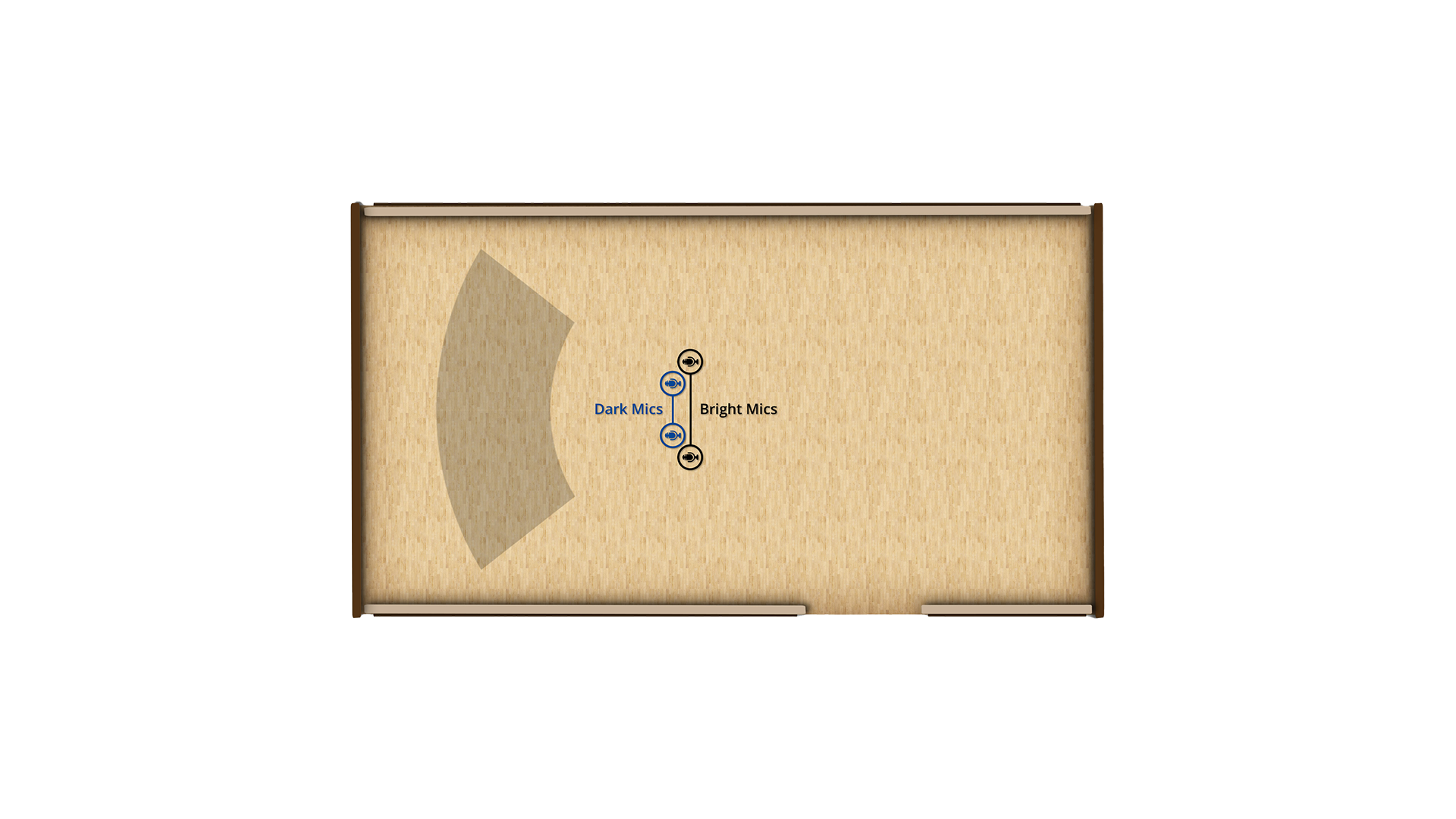

TEC Awards Nominee
Our Synchron Duality Strings have been nominated for the 2025 NAMM TEC Awards in the category of Musical Instrument Software. A huge thank you to TEC Awards and all of YOU for your incredible support. Let’s bring this award home together!
Please head to the NAMM TEC Awards website and cast your vote for Duality Strings!
Uniting the Best of Both Worlds
Epic lushness or subdued elegance? Soaring Hollywood strings that fill the big screen or the immediacy of a close mic’d smaller ensemble? Why settle for one when you can have both?
Opposites attract, after all, and with Synchron Duality Strings, they don’t just complement each other – they elevate one another. Each collection of the series features a large ensemble recorded in the world-class acoustics of Stage A and a smaller one captured in the tight, controlled environment of Stage B. Performing together, perfectly in sync, they cover the full spectrum: from regular articulations to subtle flautandos, from muted tones to fingerboard-burning virtuosity, from bold intensity to restrained passion. These versatile string collections have far more in store for you than just double the possibilities – they form a 'Dynamic Duo' that provides an exceptional, life-like string sound with a host of options.
Discover the Series
Synchron Duality Strings (regular)
Full
Standard
Synchron Duality Strings (sordino)
Full
Standard
Synchron Duality Strings (colors)
Full
Standard
Synchron Duality Strings (virtuoso)
Full
Standard
Overview
Two string ensembles, one performance
Lush Hollywood-proven and direct, immediate strings
Ensembles recorded separately at Synchron Stage A and B, playing together
52 Players in Stage A + 27 players in Stage B = 79 in total
Seamlessly blendable
Use them in combination or separately
Multiple dark and bright mics, additional ribbon mics and “room” presets

The Duality Principle: The two string ensembles were sampled at once, playing in separate rooms at Vienna Synchron Stage. While the larger ensemble played in the famous main hall, Stage A, the smaller ensemble was recorded in the relatively dry Stage B. Both ensembles performed together, with the conductor on the podium in Stage A also directing the ensemble in Stage B via video monitors. And that’s where the magic happens! With the musicians’ ability to hear each other from different rooms, all musical aspects of every performance are perfectly in sync, such as volume, timbre, vibrato, note length, and phrasing, for every articulation. Seamlessly blend the resonant sound of a full ensemble with the close, personal touch of a smaller group.
Synchron Duality Strings (regular)
Synchron Duality Strings (sordino)
Synchron Duality Strings (colors)
Synchron Duality Strings (virtuoso)
Synchron Duality Strings (fx)

Articulations
Short notes
Spiccato normal and tight
Staccato normal and hard
Détaché normal, marcato, soft
All with bold and agile attack variants
Long notes
Sustains with soft and strong vibrato, normal/soft/fast/sfz attack
Espressivo
Swell
All except no vibrato with normal, soft, and very soft release
Sustains without vibrato, normal and fast attack
Performance legato
Legato normal and agile, soft/strong vibrato and espressivo (normal only), normal/fast/sfz attack
Slurred legato, soft/strong vibrato and espressivo, normal/fast/sfz attack
Portamento, soft/strong vibrato and espressivo, normal/fast/sfz attack
All with normal, soft, and very soft release
*The Double Basses have no 3rd trills and lack measured tremolo at 180 BPM.

To capture the spectacular ambience of Stage A and the signals in the dryer sounding Stage B, our engineers employed separate phase-coherent microphone configurations that were recorded simultaneously to provide a broad range of room options. All sections were recorded separately at their designated positions.
The Dark and Bright microphone signals of Stage B consist of a mix of two pairs of mics, respectively:
Dark Mics: Royer SF24 + Sennheiser MKH 8040
Bright Mics: Neumann M149 + Ehrlund EHR-M
The additional Ribbon L/R microphones that come with each Full Library add an extra warm, low-mid layer to the transparency of the Decca Tree in Stage A, for an even lusher string sound.
The main surround microphone settings may also be used instead of the main stereo room mics in order to achieve a wider and more ambient mix. Blending surround signals with the other microphone signals creates a denser, more lush overall sound, even in stereo applications.
Room Mix Presets feature an excellent mix-down to stereo from the Decca tree and surround mic positions for a CPU and RAM-saving sound that’s perfectly balanced right out-of-the-box. A host of Mixer Presets is available in the categories of “Decca Tree Multi-Mic”, “Surround to Stereo Downmix”, and “Surround”.Due to the comprehensive selection of discrete audio channels you can mix your string sound in stereo, 5.1 surround or even Dolby Atmos (or any other immersive audio format, such as 9.1 Auro 3D).


/synchron-duality-strings-regular-thumbnail_7Fy6o0bdJf.webp)
/synchron-duality-strings-sordino-thumbnail_7Fy6o0bdJf.webp)
/synchron-duality-strings-colors-thumbnail_7Fy6o0bdJf.webp)
/synchron-duality-strings-virtuoso-thumbnail_7Fy6o0bdJf.webp)












